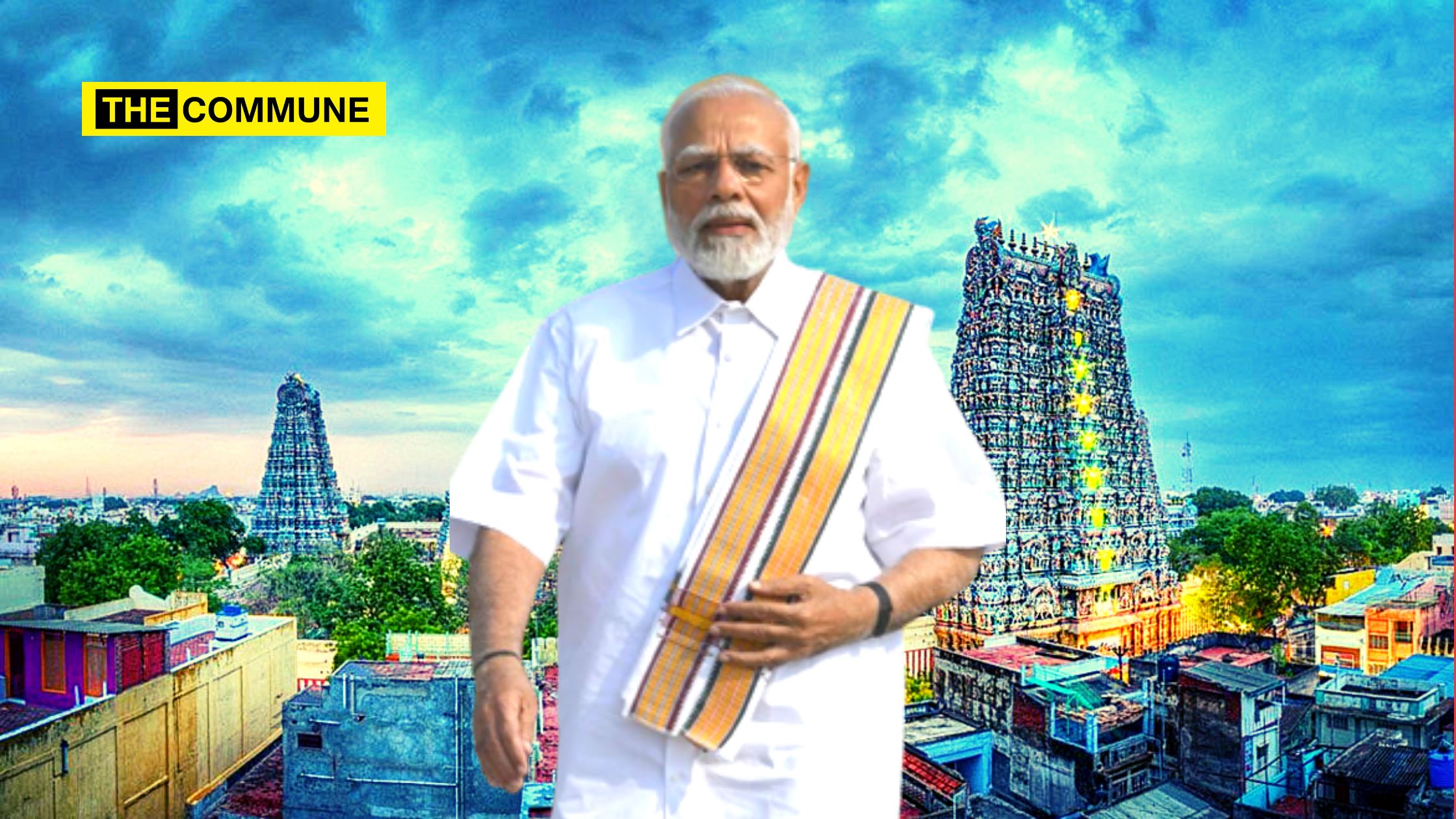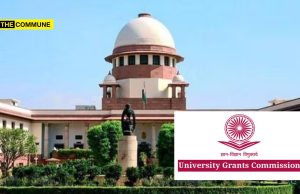
Since 2014, after assuming office as the Prime Minister at the Centre and defeating the Congress, PM Modi has left the Congress and its former allies trembling. In Tamil Nadu, parties such as DMK, Congress, VCK, MDMK, and others, aided by the media, created an illusion that the Modi-led government mistreats Tamil Nadu. They propagated factually incorrect information to generate anti-Modi sentiment in the state, and the media, in turn, peddled the same misinformation, aligning with their paymasters.
In reality, government data refutes their claims, and the people of Tamil Nadu have benefited significantly from the various schemes implemented. These initiatives have reached even the remote villages, vastly improving the lives of the residents. Let us explore a few major schemes launched by the Modi government and their extensive impact on the people of Tamil Nadu.
Let’s begin by examining the share of central taxes allocated to Tamil Nadu during the UPA 1&2 rule and the NDA government since 2014. When both the Congress and DMK were in power during UPA 1&2, the funds released to Tamil Nadu amounted to ₹85.72k Cr. In contrast, under the current BJP government from 2014 to 2023, this figure has risen significantly to ₹2.68 Lakh Cr. Comparing this with the UPA regime, the amount has swelled by more than three times, and a similar trend is observed in grants-in-aid released to Tamil Nadu.
It is crucial to highlight the substantial gap in funds allocated for disaster relief in Tamil Nadu. During the UPA regime, this amount did not exceed ₹5,000 Cr, whereas in the last nine years, it has reached around ₹12,000 Cr. This noteworthy increase was acknowledged by the Prime Minister during the inaugural event at Trichy Airport.
The Prime Minister highlighted the unprecedented expenditure on Tamil Nadu by the Central Government. He mentioned that in the decade preceding 2014, states received ₹30 lakh crore, while in the last 10 years, this amount increased to ₹120 lakh crore. Tamil Nadu also witnessed a 2.5-fold increase in funding during this period compared to the decade before 2014. The state experienced more than three times the expenditure on national highway construction and 2.5 times more funding in the railways sector, as per the Prime Minister’s information.
He further informed that numerous families in the state are benefiting from essential provisions such as free ration, medical treatment, and amenities like durable houses, toilets, and piped water.)
On August 15, 2014, PM Modi announced the financial inclusion initiative from the ramparts of the Red Fort. Within weeks, the Government of India launched the Pradhan Mantri Jan Dhan Yojana (PMJDY). Since its inception, more than 50 Crore bank accounts have been opened, with 1.5 Crore accounts opened in banks in Tamil Nadu. It is apt to say that this scheme has revolutionized financial inclusion in India, playing a vital role in taking government schemes to the last mile of connectivity and eliminating leakage in government schemes through Direct Benefit Transfer (DBT) by putting an end to the middlemen.
For years, farmers have suffered due to various unprecedented natural disasters caused by climate change. To assist them, the PM Modi-led government launched various schemes at different periods. Some major schemes include Soil Health Cards, PMFBY, PM-KISAN, and most importantly, the Minimum Support Price (MSP) for crops. The number of beneficiaries in Tamil Nadu is unimaginable when compared to the propaganda spread by DMK and its supporters.
- Soil Health Cards – Launched in the year 2015, the initiative aims to assist farmers in determining which fertilizer to use and the appropriate quantity based on weather conditions and various factors. As of December 2023, the government has issued 23.58 Cr Soil Health Cards (SHCs) to farmers nationwide, with 1.41 Cr SHCs specifically issued to farmers in Tamil Nadu.
- PMFBY – In response to crop damage caused by natural calamities, the Pradhan Mantri Fasal Bima Yojana was launched in 2016, to provide crop insurance. Under the scheme, as of 2023, approximately 2.7 Crore farmers in Tamil Nadu are insured out of the 48 Crore farmers in India.
- PM-KISAN – To financially assist eligible farmers, the Centre launched an initiative in 2019, providing ₹6,000 annually to each farmer in three installments of ₹2,000 each. Through this scheme, approximately 2 to 5 million farmers benefit each year.
- MSP – Since PM Modi assumed power, the government led by him has increased the Minimum Support Price for various crops, with hikes ranging from 57% to a highest of 147%.
The government also launched a scheme to enhance basic civic amenities in urban areas across the country. The AMRUT scheme, initiated for this purpose, has yielded fabulous results. For Tamil Nadu, since its inception, the Centre has released ₹4,397.29 Cr, and works have been completed in the selected 33 cities in the state.
Another set of schemes that have greatly assisted women continues to make a significant impact. The role of these initiatives in empowering women has been commendable, with extraordinary outcomes achieved in a very short span of time. No government has been able to accomplish what the PM Modi-led government has achieved in the last 9 years.
The Pradhan Mantri Mudra Yojana (PMMY), initiated in 2015, aims to facilitate small and micro-entrepreneurs by providing them with loans of up to 10 Lakhs. In Tamil Nadu alone, there are 4.03 Cr loan accounts, and ₹1.99 Lakh Cr has been disbursed, with reports indicating substantial benefits for women.
Another scheme that has had a significant positive impact is PM-SVANidhi, launched in 2020 to assist street vendors by providing free working capital loans. In Tamil Nadu, the scheme has benefited 3.6 Lakhs street vendors.
PM Modi’s government has devised several fruitful schemes to alleviate the challenges faced by women in rural areas. This stands in contrast to the blunders of previous rulers who neglected the needs of these women.
- From day one, PM Modi has focused on and implemented policies to uplift the poor and ensure housing for all. To achieve this, he launched PMAY-U and PMAY-G in 2015 and 2016. Till now, 1,438,497 houses have been built in Tamil Nadu under both schemes. Similar to other initiatives, these schemes have brought about significant positive changes in society and instilled hope among the poor that they too can have a house.
- Similar to the aforementioned schemes, the PM Ujjwala Yojana was introduced in 2016 to empower women and safeguard their health by providing gas cylinders to poor families. Records indicate that there are almost 37 lakh beneficiaries under PMUY in Tamil Nadu.
- In 2019, PM Modi directed his attention towards women who endured hardships fetching drinking water by walking miles each day. To address this issue, he introduced the Jal Jeevan Mission, a significant scheme aimed at ensuring water for all, reducing the time spent fetching water, and providing access to tap water in every household. In just a few years since its launch in 2019, in Tamil Nadu alone, 78.88% of households are now connected to tap water.
Furthermore, the government has directed its attention towards training youths under the Samarth scheme for the textile industry. Among all states, Tamil Nadu has benefitted significantly from this scheme, with more than 31,000 individuals undergoing training.
Education is crucial for the prosperity of any nation, and the health sector is equally important, requiring close attention from the government. Before PM Modi, in 2002, then PM Atal Bihari Vajpayee launched the Sarva Shiksha Abhiyan, a significant scheme aimed at improving the infrastructure of the education sector by constructing additional classrooms, new schools, and providing basic amenities within school premises. In Tamil Nadu, starting in 2014, the Centre has constructed thousands of primary, upper primary, and secondary schools, along with additional classrooms and toilets.
Furthermore, the Atal Innovation Mission was initiated by the PM Modi government in 2016 to bring the best young minds into the mainstream and nurture them as innovators. In Tamil Nadu, 975 Atal Tinkering Labs have been established in both government and private schools.
Recognizing the importance of student health, the PM Poshan Scheme was launched across the country in 2018. This centrally sponsored scheme aims to provide healthy food to students. In Tamil Nadu, around 45 Lakh students are enrolled in this scheme annually.
To provide health assistance to the people, PM Modi launched the Ayushman Bharat-Pradhan Mantri Jan Arogya Yojana in 2018, aiming to ensure that every citizen of the country can receive treatment when ill. Government data reveals that as of November 2023, almost 95 lakh people in Tamil Nadu have received treatment, making it the state with the highest number of beneficiaries. Before this, the focus on building a robust health infrastructure was initiated in 1999, with regulations introduced to establish new medical colleges in Aspirational Districts, coupled with existing hospitals. In Phase 3 of this initiative, the Centre established 11 new medical colleges in Tamil Nadu, each equipped with a hospital boasting a large capacity to treat more patients.
The infrastructure projects allocated to Tamil Nadu by the NDA Government are extensive and cannot be overlooked. From redeveloping railway stations under Amrit Bharat Stations, ports under Sagarmala, rural roads under Pradhan Mantri Gram Sadak Yojana, and airport development under the Udaan Scheme, to highways under Bharatmala Yojana, the list is extensive and impactful.
Lastly, the government has been concurrently focusing on the rejuvenation and promotion of spiritual and tourist sites. Schemes were launched for this purpose in 2014-15. Under DARSHAN, coastal areas were developed with an expenditure of ₹71 Cr, and in Darshan 2.0, Nilgiris and Mamallapuram have been identified for development. Another scheme is PRASHAD, through which Velankanni and Kanchipuram have been developed, and 8 temples have been identified for further development.
Furthermore, the initiative to bring back Jallikattu, which was banned by the Congress-led UPA Government in 2011, where DMK played a key role, was lifted by the PM Modi-led NDA government in 2017. The ban on the bull and the permission for JALLIKATTU were restored, allowing the event to run smoothly without interference. The derogatory remarks made by Congress Leader Jairam Ramesh, who referred to jallikattu as a “barbaric sport” and denigrated Tamil culture, were condemned. In 2023, PM Modi himself installed the Sacred Sengol in the parliament and frequently mentioned Thirukkural and Silapathigaram on the world stage.
The government has also promoted initiatives like Kashi Tamil Sangamam and Sourashtra Tamil Sangamam, which reinforce cultural ties between the spiritual places of Bharat. It is a fact that no other Prime Minister has showcased the richness of Tamil culture to the world like PM Modi. The mentioned schemes are just a few among the total, and there are others such as the PLI Scheme and policies that attract significant Foreign Direct Investment (FDI) to Tamil Nadu. In his speech at the inaugural event of Trichy Airport and laying the foundation stone for schemes worth ₹20,000 Cr, PM Modi stated that Tamil Nadu is becoming the prime brand ambassador for ‘Make In India.’
This article is based on an X thread by Soma Sundaram
Soma Sundaram is an engineering student a political buff interested in economics.
Subscribe to our channels on Telegram, WhatsApp, and Instagram and get the best stories of the day delivered to you personally.




